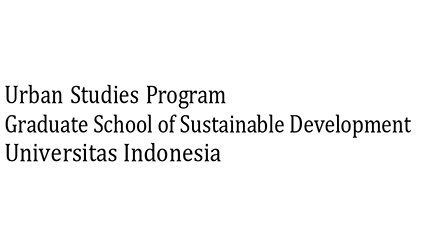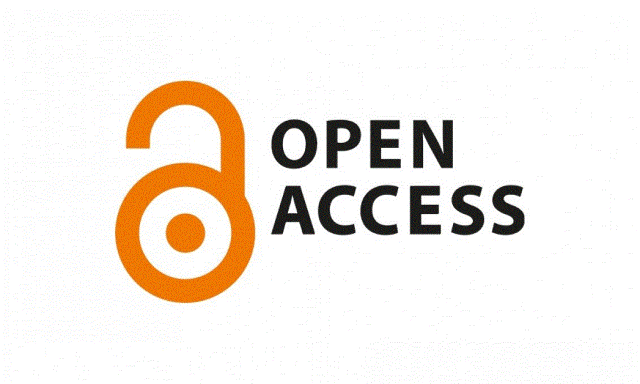Policies
Open Access Policy
This journal provides immediate open access to its content on the principle that making research freely available to the public supports a greater global exchange of knowledge.
Readers have right to read, download, copy, distribute, print, search, or link to the full texts of all articles in Cities and Urban Development Journal (CUDJ).
Publication Charge
There is no processing and publishing charges to corresponding author for publishing in Cities and Urban Development Journal (CUDJ). All of processing and publishing fee will be waived by Urban Studies Program, Graduate School of Sustainable Development, Universitas Indonesia
Publication Frequency
The journal is published twice a year on July and December.
Privacy Statement
The names and email addresses entered in this journal site will be used exclusively for the stated purposes of this journal and will not be made available for any other purpose or to any other party.
Copyright and License
All of CUDJ's articles are published under the Creative Commons Attribution-ShareAlike (CC BY-SA) license. The journal is licensed under the Creative Commons Attribution-ShareAlike 4.0 License, which provides an opportunity for others to share articles with acknowledgement of the journal's authorship and first publication in this journal which simultaneously grants the author copyright and the journal the right of first publication.
Read more about the Creative Commons Attribution-ShareAlike 4.0 Licence here:

Readers, libraries, or individuals are free to:
Share — copy and redistribute the material in any medium or format
Adapt — remix, transform, and build upon the material for any purpose, even commercially.
Under the following terms:
Attribution — You must give appropriate credit, provide a link to the license, and indicate if changes were made. You may do so in any reasonable manner, but not in any way that suggests the licensor endorses you or your use.
ShareAlike — If you remix, transform, or build upon the material, you must distribute your contributions under the same license as the original
No additional restrictions — You may not apply legal terms or technological measures that legally restrict others from doing anything the license permits.
Disclaimer
Articles and creative works published in CUDJ are the authors' opinions and may not represent those of the publisher or editorial board.
Conflict of Interest Policy
Editors are tasked with assigning journal submissions in an attempt to reduce any potential conflicts of interest. The following interactions between authors and editors are seen as a problem and should be avoided: Recent co-authors, current co-workers, recent colleagues, and PhD students for whom the editor chaired the committee. Individual editors must notify the managing editor of any conflicts not on the above list after articles are assigned. The manuscript will be assigned to the co-editors who are least conflicted if none of the editors meet all of the conflict screens. Additionally, sitting editors designate the least conflicting co-editors for each article submission. In order to prevent conflicts of interest, referees are also given journal submissions. Referees are asked to notify the editor of any potential conflicts of interest when papers are assigned.
Confidentially
All information pertaining to the editorial and peer review process of submitted articles must be kept private by editors, authors, and reviewers. The peer review process is anonymous and confidential, and the identity of reviewers are not disclosed unless specifically stated as part of open peer review. Reviewers are required to keep manuscripts private. When evaluating a manuscript, a reviewer who wants to consult with colleagues must speak with the editor, make sure anonymity is upheld, and the colleagues ‘names attached in final report of the journal.
No correspondence with the journal, referees' reports, or other confidential material may be published, divulged, or otherwise made public without prior written agreement, regardless of whether a submitted work is published. Reviewers should be informed that we take every precaution to maintain the privacy of their names as our policy. However, we cannot promise to uphold this privacy if the lawsuit of identity disclosure is successful.
In the event of suspected research or publication misconduct, Cities and Urban Development Cities and Urban Development Journal retains the right to get in touch with sponsors, regulatory agencies, publications, and the institutions of the authors.
Peer Review Process
CUDJ arrange the double-blind peer review process, which involves two or more reviewers with national reputations and experience in the specific field of economics for each publication. The board of editors oversees these reviewers, who are occasionally assigned to each series. Referees will be assigned after the board has approved an article for submission and determined that it is in line with the topic established by CUDJ.
There are four key questions by the referees to determine if a work is appropriate for publication:
- Academic depth in terms of how well research questions and methodologies align
- Academic depth in terms of how well analysis and conclusion are matched
- The references' completeness and accuracy
- The article's originality and distinctive contribution
To determine if the item is accepted or not, the process typically takes two weeks to a month. It is dependent on how the referees' review is going. The average time to complete the edit-layouted process for an accepted article is three months.
Turnitin, a web application for plagiarism detection, is used. CUDJ has a policy against plagiarism of less than 25%.






